7 Best Reply.io Alternatives & Competitors for Automated Sales Outreach
Tried Reply.io? It probably worked, then fell apart.
Now your emails land in spam. Replies dropped. Messages also get lost in crowded inboxes, making it harder for your outreach to stand out without the right tools.
And now you’re duct-taping warmup tools, inbox rotation, and manual personalization, just to make it work.
Here’s the truth:
Reply.io isn’t built for modern outreach.
Not in 2025. Not with Gmail crackdowns. Not for teams scaling across 10+ inboxes.
This guide breaks down 7 Reply.io alternatives that actually help you:
- Hit inbox, not spam
- Personalize at scale
- Auto-warm domains
- Run high-volume safely
Plus: What actually matters when choosing a modern outreach tool.
Let’s fix your outbound.
TL;DR: 7 Better Alternatives to Reply.io (That Actually Scale)
Reply.io looks fine on the surface — until you try to scale.
Here’s why most teams switch:
- Emails land in spam, no warning, no fixes
- Glitchy UI + broken LinkedIn chrome extension
- Rigid sequences and missing logic
- Surprise billing, weak support, and duct-taped warmup tools
If you’re serious about inboxing, personalization, and running multiple inboxes without chaos, these tools actually deliver:
Note: QuickMail offers a free plan with limited features, including a set number of credits and basic filters. These basic filters are ideal for beginners or users with minimal filtering needs. Instantly also provides entry-level options with basic filters on their lower-tier plans.
Let’s get into the full breakdown.👇
Why People Look for Reply.io Alternatives?
- Inconsistent Deliverability

You set up sequences.
Emails go out. But inbox placement? A gamble.
Multiple reviews mention system-level issues with no real explanation.
One user said: “Set-and-forget campaigns work well, until you realize half are in spam.”
- Buggy Chrome Extension & Glitchy UI

Almost every user who used the LinkedIn extension hit this wall:
It either stops working, needs constant reinstalling, or breaks every time LinkedIn updates.
Even basic features like saving leads or viewing stats are “a 4-step process instead of 1.”
- Confusing Sequences, Poor Navigation

Users say the platform looks simple. But once you dive in, things get weird:
- Custom sequences don’t show up under “Sequences.”
- Stats and contacts are hard to find
- Editing existing flows takes more time than creating new ones
That’s not scaling. That’s babysitting.
- Shady Billing & Auto-Renewals

Too many reviewers flagged this:
- No notice before charging for renewals
- Price increases without warning
- Locked into $6K annual contracts “without clear notification”
You shouldn’t need your bank to cancel a SaaS tool.
- Weak Support When Things Break

- Bugs happen. But when they do, users say support is either unresponsive or rude.
- Several reported tickets went unanswered for weeks.
- Others said fixes only happen after escalation, not proactively.
- So, in short, Reply.io has potential, but it’s not built for teams who need:
- Inbox control
- Personalization at scale
- Multi-inbox workflows
- Reliable support
- Transparent pricing
- Inbox control
That’s why most serious teams move on.
In addition to these issues, many users cite Reply.io’s feature limitations as a key reason for switching. These limitations can restrict functionality and hinder growth for sales teams seeking scalable and cost-effective sales automation solutions.
Next, let’s break down what you should look for in a Reply.io alternative.
What to Look for in a Reply.io Alternative?
Switching tools won’t fix your outreach unless you know what actually matters.
Most teams waste months jumping from platform to platform…
…because they chase features instead of outcomes.
Here’s what separates a tool that gets replies from one that gets you blacklisted:
Look for tools that offer advanced filters to enable refined audience targeting and better data segmentation. The right platform should also help you optimize prospecting by leveraging AI-driven strategies for more efficient and effective outreach.
Next, let’s break down the tools that actually deliver.
7 Best Reply.io Alternatives & Competitors for Automated Sales Outreach & Cold Email Campaigns
Looking for the best keyword alternatives? Here are 7 top tools that can help you streamline your outreach efforts.
These platforms not only enhance your sales outreach but also support lead generation and outbound sales by automating and optimizing the process of attracting and converting prospects across channels like LinkedIn and email.
Many of these tools also offer a Chrome extension to streamline LinkedIn outreach, making it easier to find contact information and manage connection requests while staying within LinkedIn's activity limits.
- Salesforge
- Instantly.ai
- Smartlead.ai
- Mailshake
- Woodpecker
- Lemlist
- Quickmail
7 Best Reply.io Alternatives – Full Comparison Table
Note:
- Bulk email: Instantly, Smartlead, and QuickMail support bulk email sending for large-scale campaigns.
- Multiple channels: Salesforge, Mailshake, and Lemlist offer outreach across multiple channels, such as email and LinkedIn, to enhance engagement.
- Unlimited email: Instantly and Smartlead provide unlimited email sending, allowing users to scale outreach without extra charges.
These features are essential for teams looking to scale their outreach efficiently and manage campaigns across multiple accounts and channels.
1. Salesforge – Best All-in-One Alternative for Warmup, Email Deliverability & Personalization at Scale
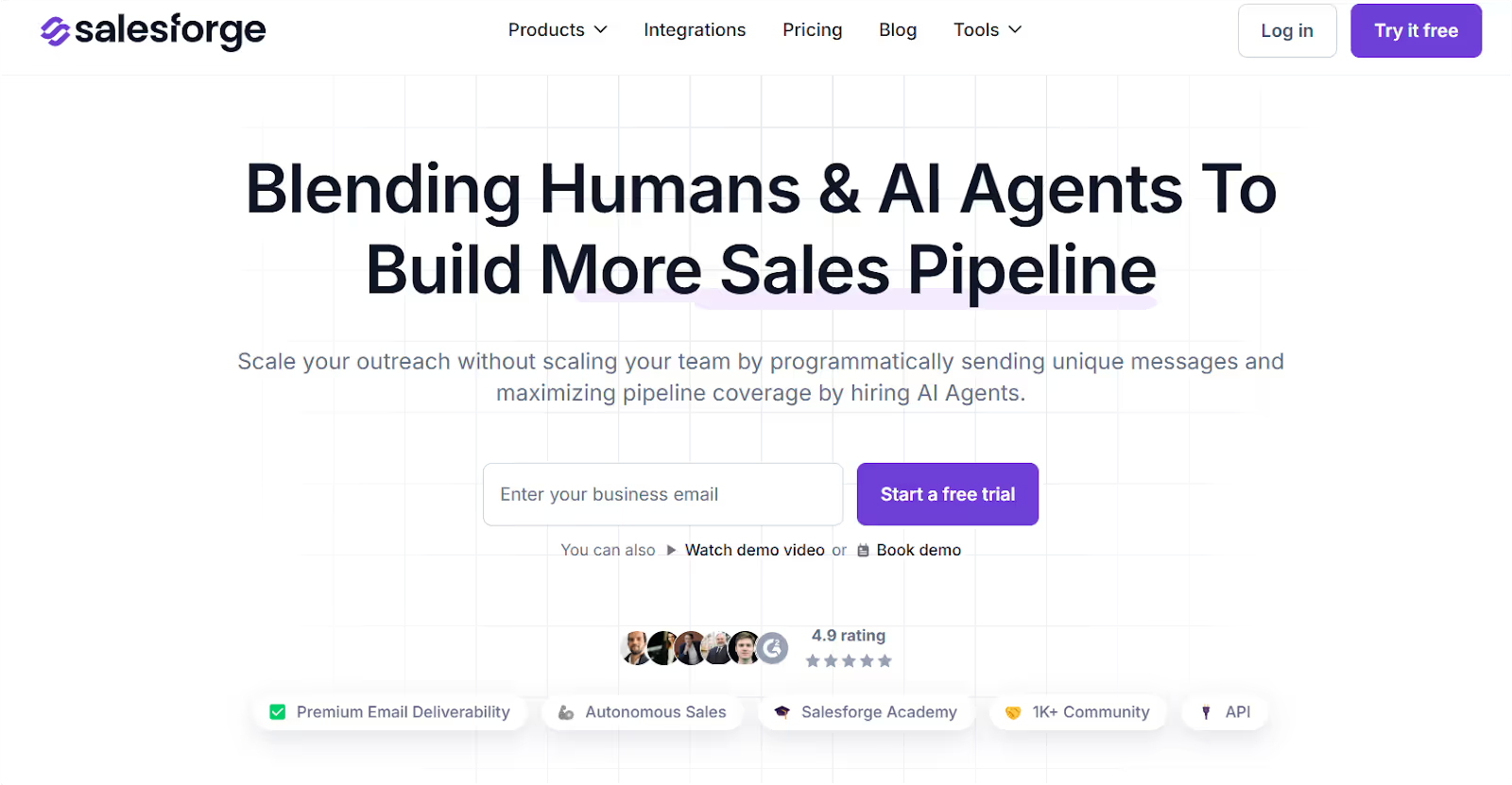
If you’re switching from Reply.io because of broken deliverability, rigid sequences, or tool sprawl, Salesforge fixes all of it in one platform.
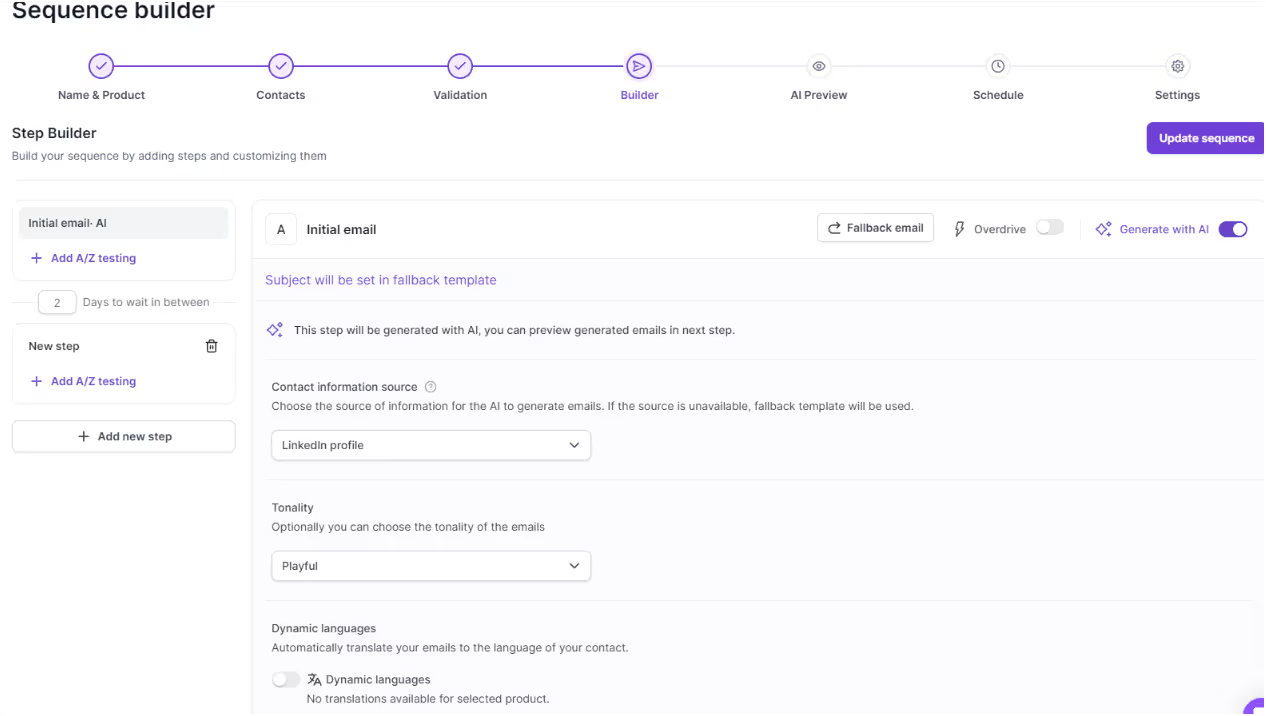
Where Reply, Instantly, and Smartlead still bolt together warmup + outreach + inbox management separately…
Salesforge does it natively.
🧠 Why It’s Better Than Reply.io:
- Full-stack platform: warmup, outreach, personalization, reply handling, all under one roof
- Built-in deliverability system (Warmforge, Infraforge) so you actually hit the inbox
- Personalization engine (Overdrive AI) rewrites every email for every lead, zero duplicates
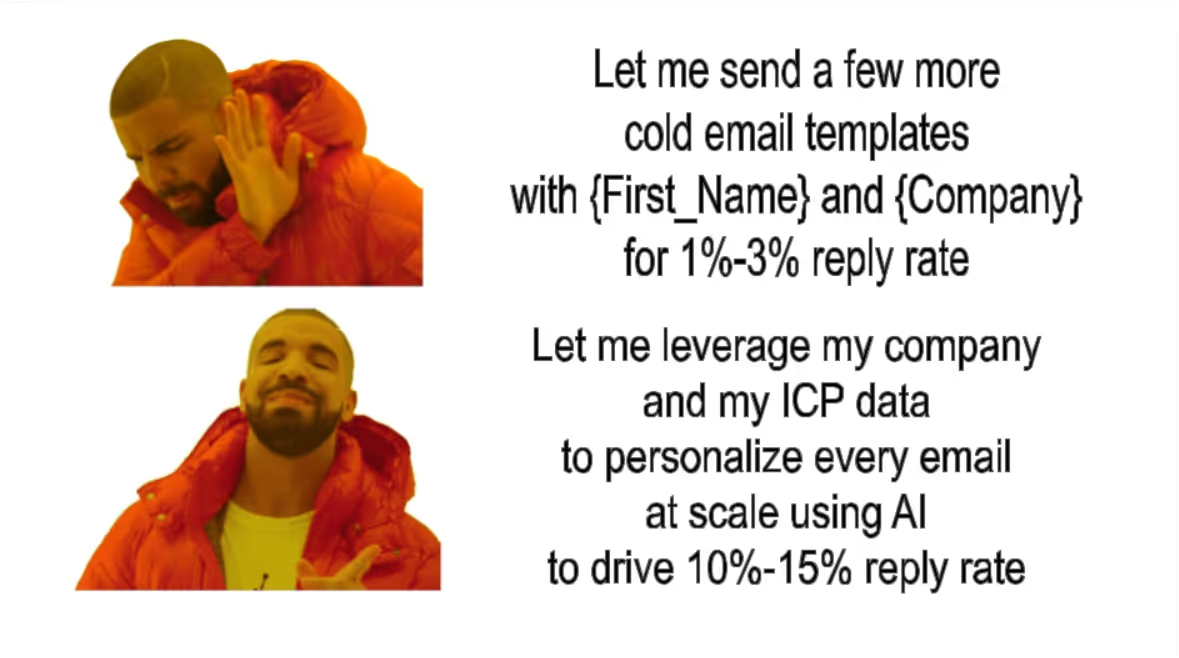
- Supports 10–50+ inbox scaling with smart rotation and sentiment tracking, and higher-tier plans include unlimited mailboxes to help large organizations scale email communication without limitations.
- No shady billing, no tool duct-taping, allowing users to access features and credits without restrictions for maximum flexibility.
Salesforge Vs Reply.io. Which one to choose?
Salesforge Pricing:
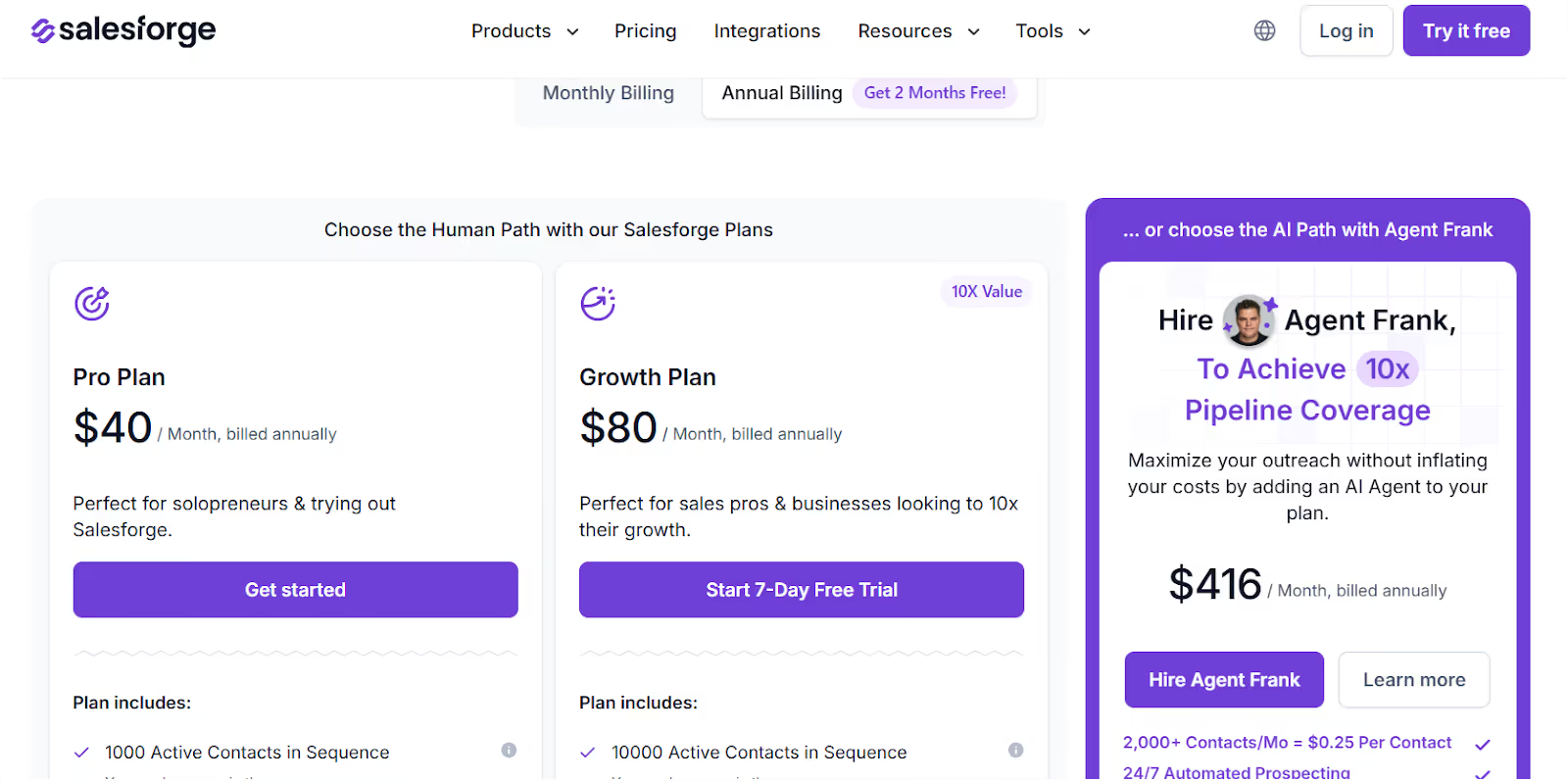
- Starts at $40/month
- Growth plan: $80/month (10k contacts, 50k emails, unlimited warmup)
- Add-on: Agent Frank (AI SDR) for $416/month if you want full autopilot
Pros and Cons of Salesforge
Salesforge replaces Reply.io, Instantly, Smartlead, and your warmup tool in one clean system.
If you're tired of bouncing between tools just to land one email… start here.
👉 Try Salesforge for free or hire Agent Frank if you want it done for you.
2. Instantly.ai – Best for Scaling Fast (If You Can Tolerant the Risk)
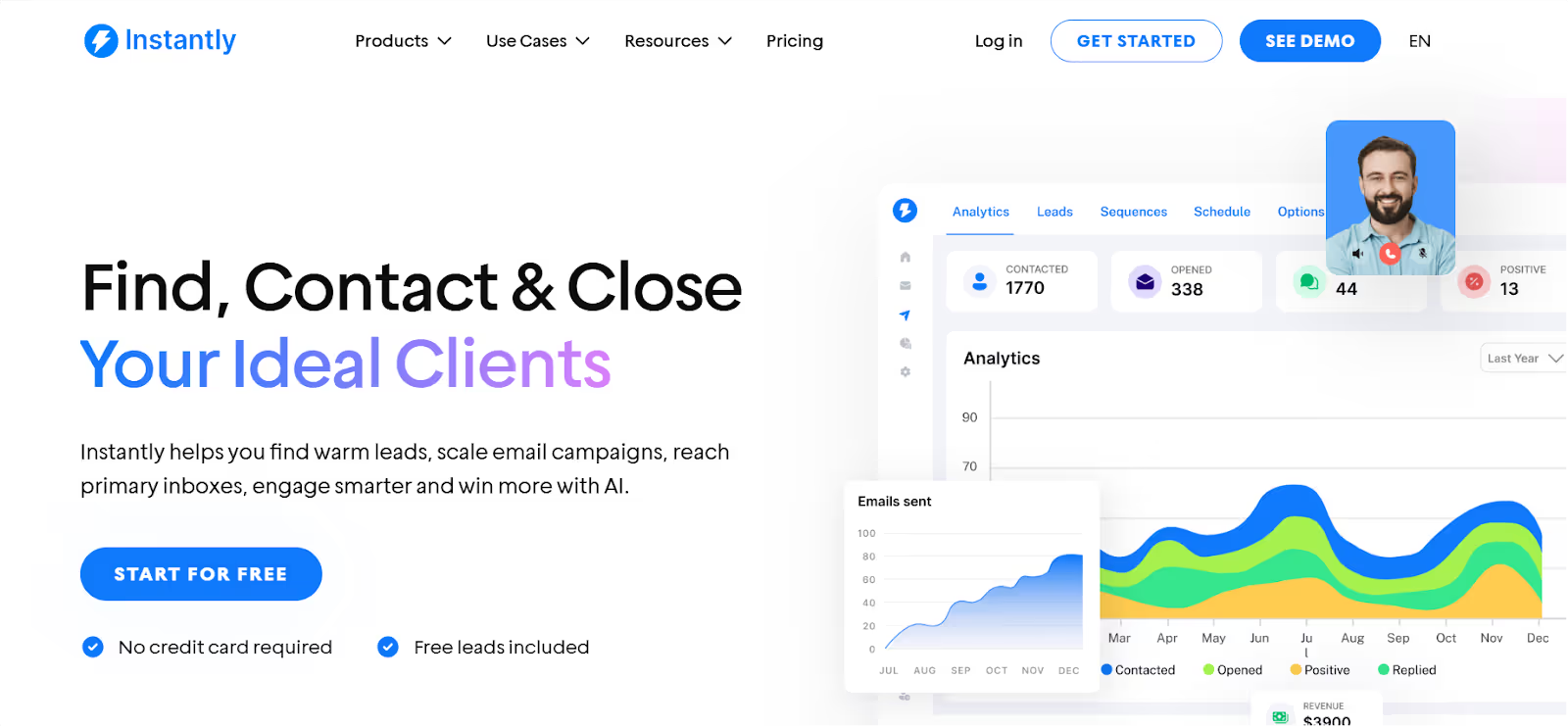
Instantly.ai is built for sales teams that need to move fast and scale even faster.
Designed with high-volume users and large-scale operations in mind, this sales automation platform packs in advanced automation, robust analytics, and a suite of features that make it a go-to for agencies and businesses managing multiple clients.
What sets Instantly.ai apart is its ability to handle massive outreach campaigns without breaking a sweat.
With automated follow ups, a centralized inbox for managing replies, and advanced reporting to track email deliverability and response rates, sales teams can streamline their entire sales pipeline and focus on what matters most—closing deals with potential customers.
The platform’s custom pricing model is tailored for high-volume users, offering flexibility for teams with unique needs. You’ll also get access to API integrations, priority support, and the ability to automate repetitive tasks, freeing up your team to focus on high-leverage activities.
However, be prepared for a bit of a learning curve—Instantly.ai’s advanced features can take some time to master, and the pricing structure may require a closer look to ensure it fits your budget.
Instantly vs Reply.io: Which one to choose?
Instantly.ai Pricing
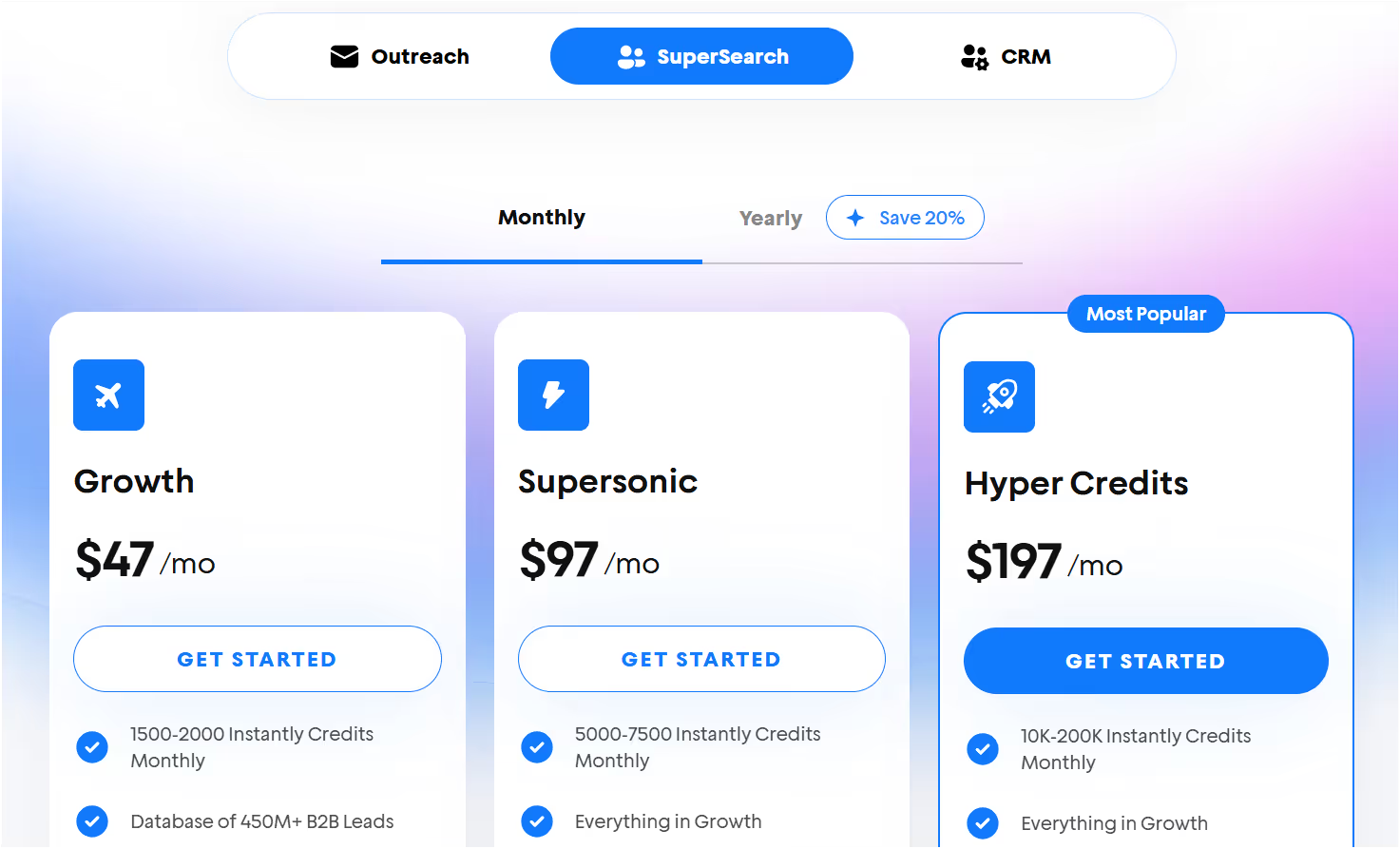
Growth Plan – $47/mo
→ 5,000 emails/mo, 1,000 contacts, 1.5–2K credits, unlimited warmup, basic AI tools
Supersonic Plan – $97/mo
→ 7.5K credits, everything in Growth + higher volume access
Hyper Plan – $197/mo
→ 100K emails/mo, 25K contacts, 10K–200K credits, API/webhooks, advanced analytics, priority support
Instantly.ai – Pros & Cons

In short, Instantly is what Reply.io should have been: faster, cheaper, and built for volume.
But, it still suffers from the same core issues: lack of transparency, deliverability gaps, and unreliable support.
If you’re okay with taking that risk to send big numbers fast, it might work for you.
But if your campaign uptime actually matters, keep reading, there are more reliable options ahead.
3. Smartlead.ai – Best for Agencies Running Multi-Inbox Outreach (If You Can Manage the Complexity)
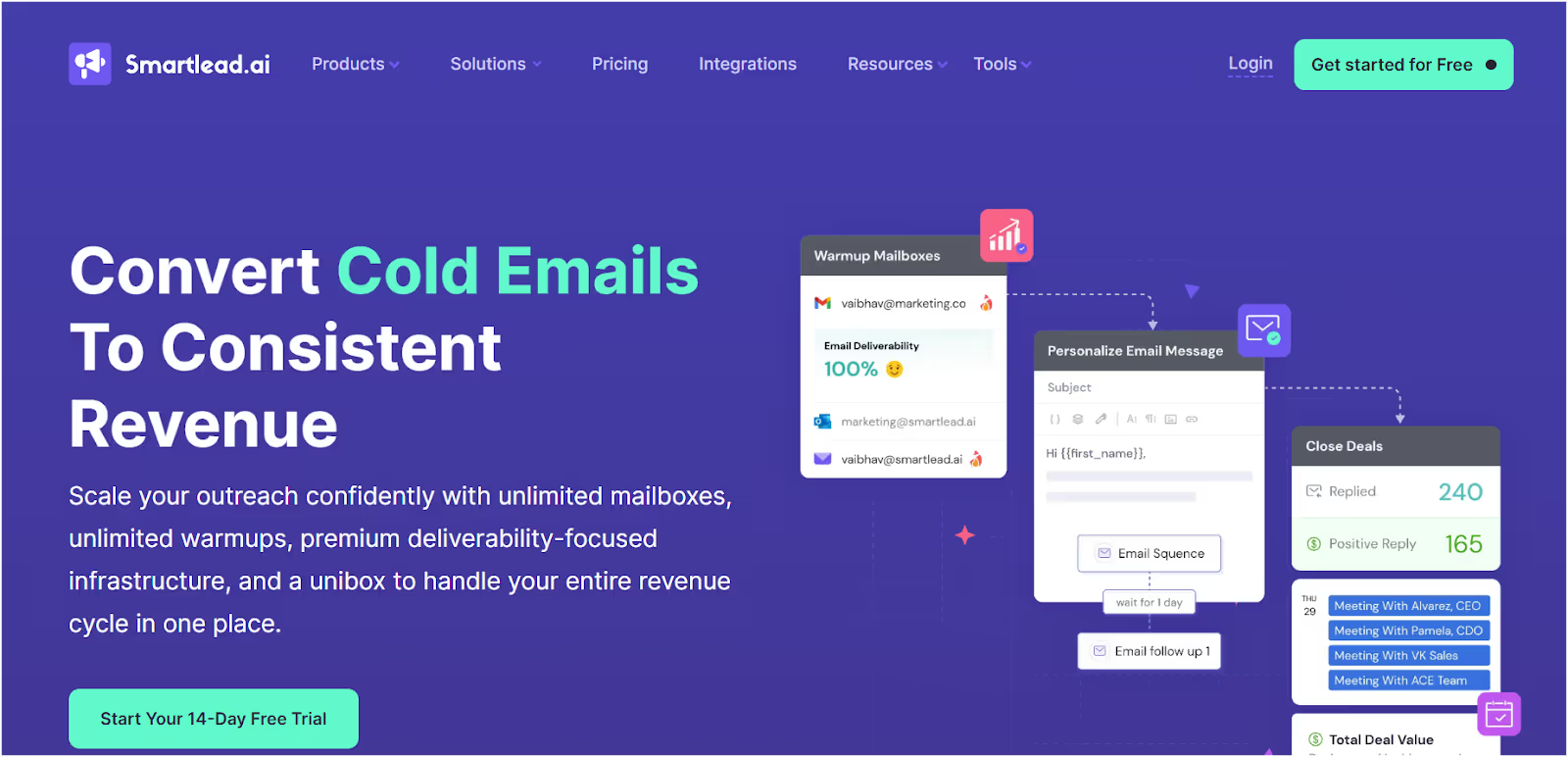
If Reply.io felt limiting and manual, Smartlead.ai looks like a dream at first glance.
Unlimited inboxes. Multi-channel outreach. Centralized master inbox. Even API access.
It’s built to help agencies and advanced teams send cold emails at scale, without needing five different tools stitched together. As a scalable solution, Smartlead is designed to handle high-volume outreach and grow with your team's needs.
But here’s the catch: the more you use it, the more you’ll realize it’s powerful… and fragile.
Smartlead vs Reply.io: Which one to choose?
Smartlead Pricing
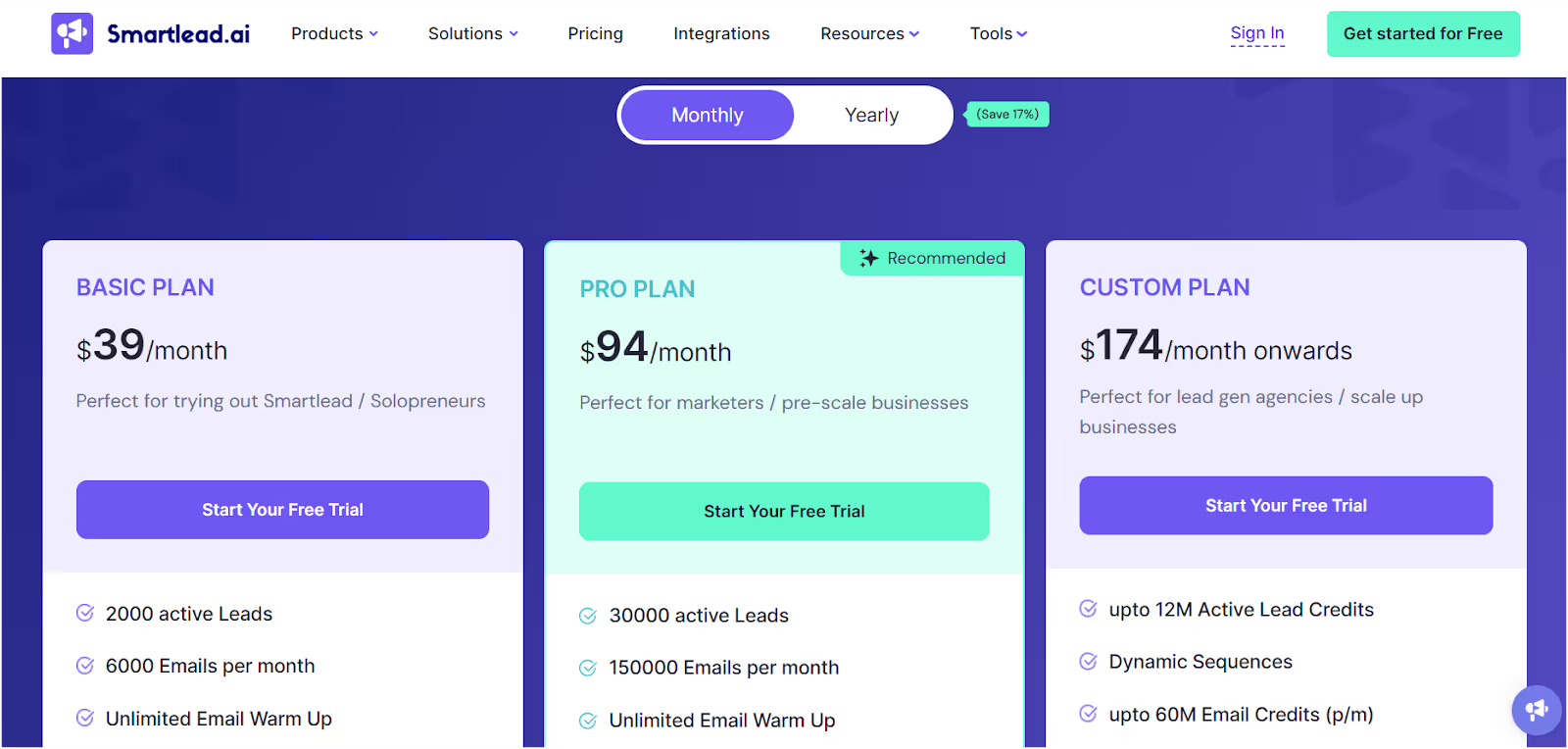
- Basic Plan – $39/month: 6,000 emails, unlimited inboxes
- Popular Plan – $79/month: 40,000 emails + CRM + guides
- Pro Plan – $94/month: 150,000 emails, API + webhooks
- Custom Plan – $174/month onwards.
Contact sales: 300,000+ emails, tailored setup
Smartlead.ai – Pros & Cons

In short,
Smartlead is a clear upgrade from Reply.io if you need inbox scale and centralized control.
But don't expect it to be flawless. You'll trade Reply's simplicity for more power and more maintenance.
Use Smartlead if you're an agency or technical team managing 10+ inboxes.
But if you need real-time reliability, better deliverability control, or less complexity, keep reading.
Our Tested 5 Smartlead Alternatives For Easy + Effective Cold Outreach in 2024
4. Mailshake – Best for Teams Who Want a Polished UI (But Hit a Wall Fast)
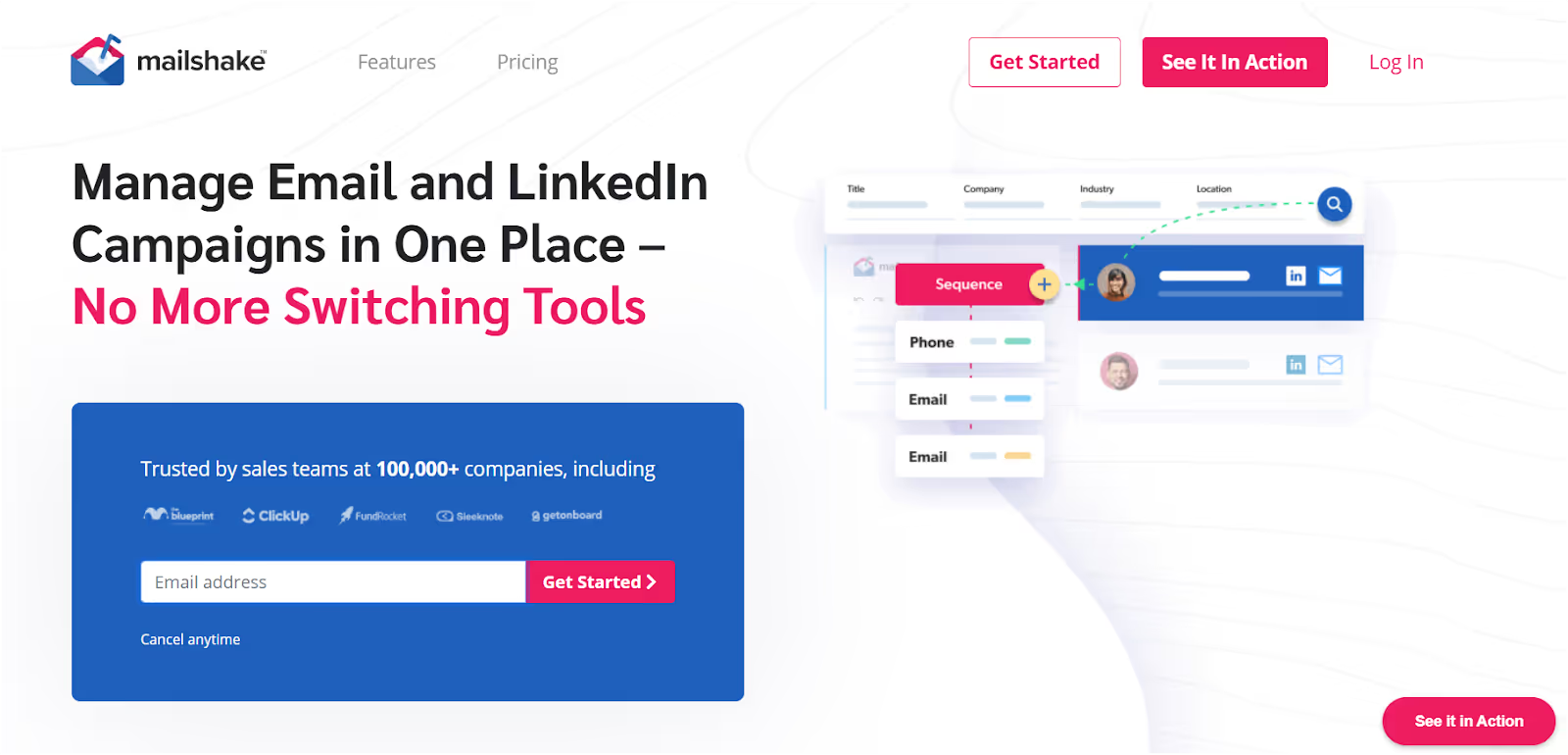
Mailshake looks slick.
It’s polished, easy to navigate, and comes with all the basic cold outreach tools baked in. Mailshake also allows you to automate follow up sequences that adapt based on prospect responses, helping categorize leads and optimize subsequent interactions to increase efficiency and reduce manual effort.
If Reply.io felt like a clunky tool from 2017, Mailshake will feel like a breath of fresh air, until you scale.
Here’s how it stacks up for real teams doing cold email in 2025.
Mailshake vs Reply.io: Which one to choose?
Mailshake Pricing:
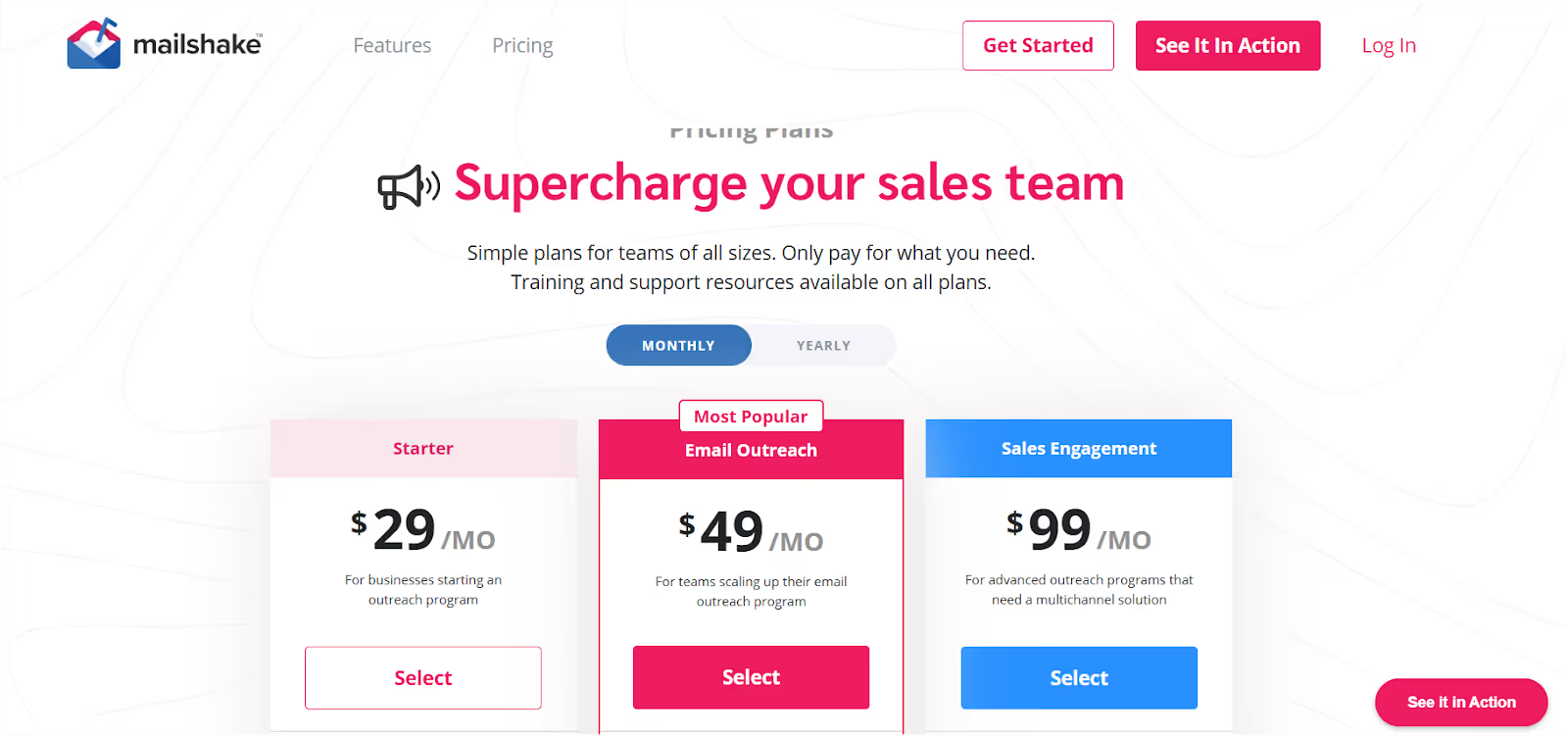
- Basic Plan: $429/user/month – 2,000 emails/mo
- Professional Plan: $49/user/month – 5,000 emails + CRM integrations
- Enterprise: $99/user/month – 10,000 emails + dialer + LinkedIn automation
Scaling a small team of 3 reps? You’re spending $300/mo minimum just to send a few thousand emails.
Mailshake – Pros & Cons

In short,
Mailshake is like a more polished Reply.io. It fixes some of the clunky UI and onboarding, but still struggles with:
- True personalization
- Deliverability
- Cost-effective scaling
If you’re brand new to outreach and want a pretty UI, it works.
But if you’re serious about booking meetings at scale?
You’ll outgrow it just as fast as you did Reply.io.
We Tested the Best 3 Mailshake Alternatives for Cold Email Outreach
5. Woodpecker – Best for Agencies Running Small-Scale Outreach (But That’s About It)
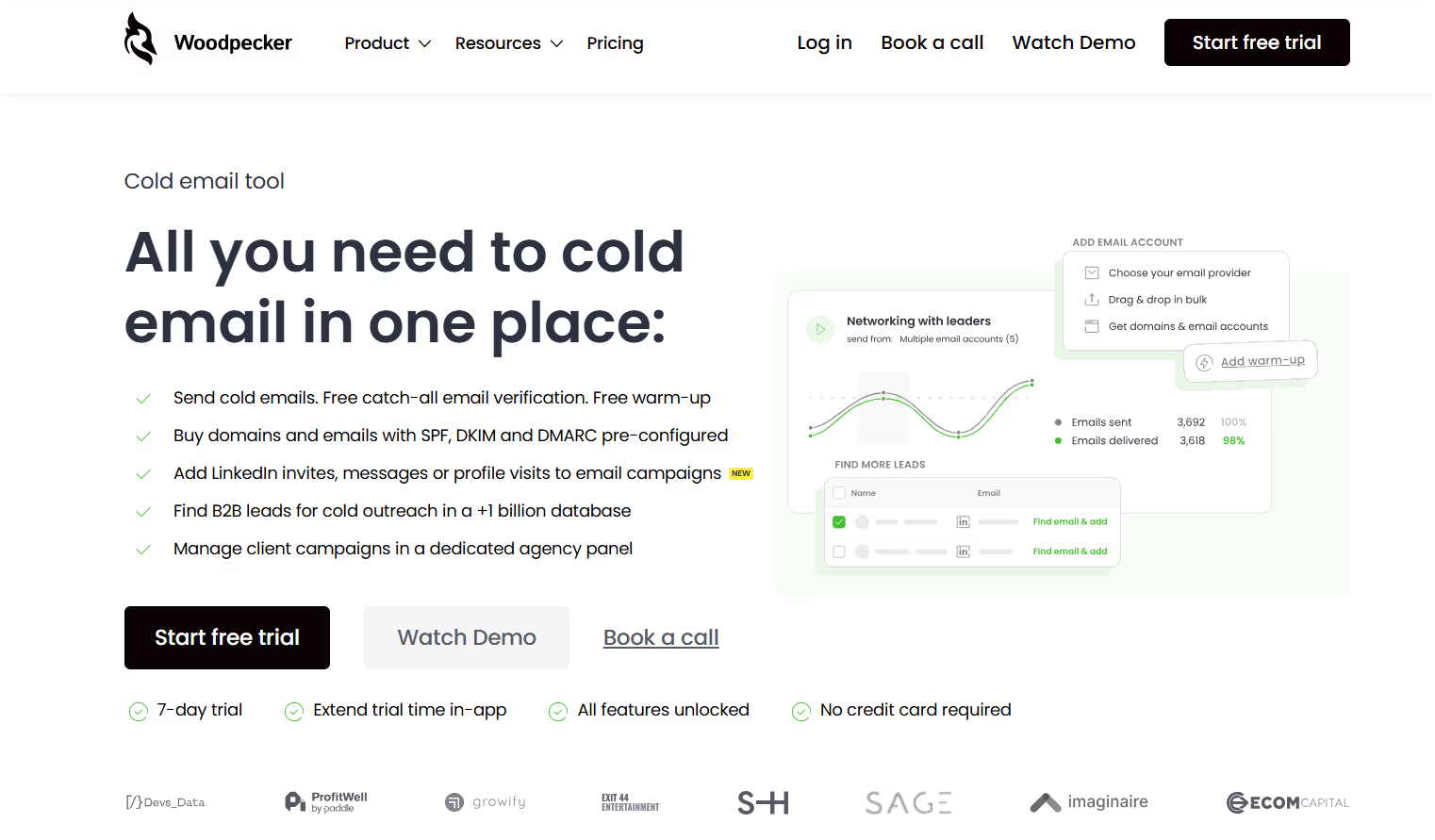
Woodpecker feels like the cold email tool your agency bought back in 2019, and just never upgraded.
It’s simple, safe, and… limited.
If you’re an agency managing a few clients or a freelancer sending < 500 emails/day, it works.
However, for tasks like bounce mitigation or automated follow-ups to improve deliverability and outreach effectiveness, you may need to rely on other tools.
But if you want to scale or control your infrastructure? Hard stop.
Woodpecker vs Reply.io: Which one to choose?
Woodpecker Pricing:
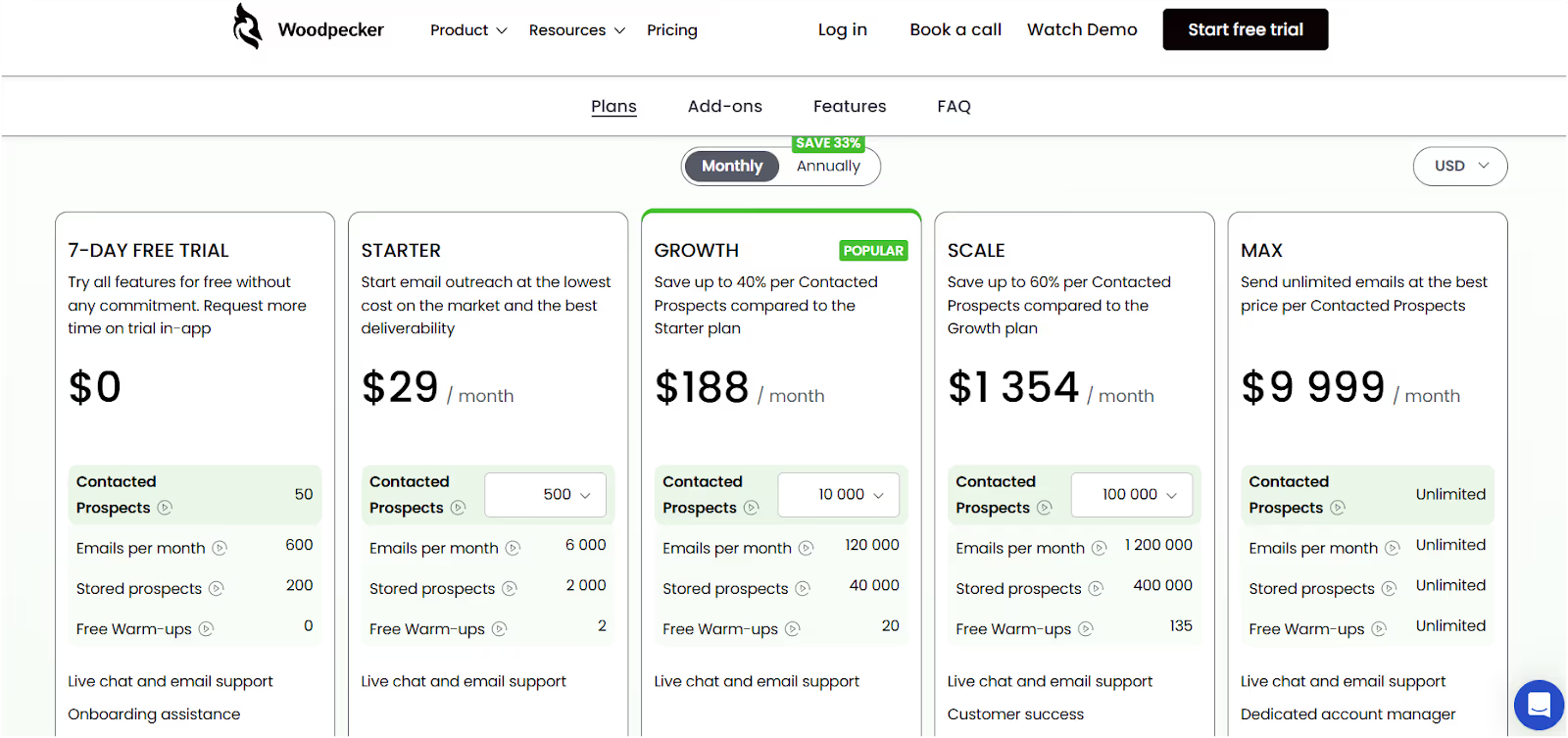
- $29–$49/month per slot (inbox-based pricing)
- Each “slot” = 1 sender inbox
- Advanced features like API access, integrations, and agency dashboards = higher tier
If you’re managing 5–10 clients, you’ll burn budget fast.
No shared warmup. No built-in lead scraping. No AI personalization.
Woodpecker – Pros & Cons

In short,
Woodpecker is built for cautious cold emailers—agencies sending from a few inboxes, carefully.
It’s better than Reply.io at handling volume safely.
But if you want smart targeting, real insights, or multichannel automation?
It won’t get you there.
6. Lemlist – Best for Visual Personalization (But Breaks When You Scale)
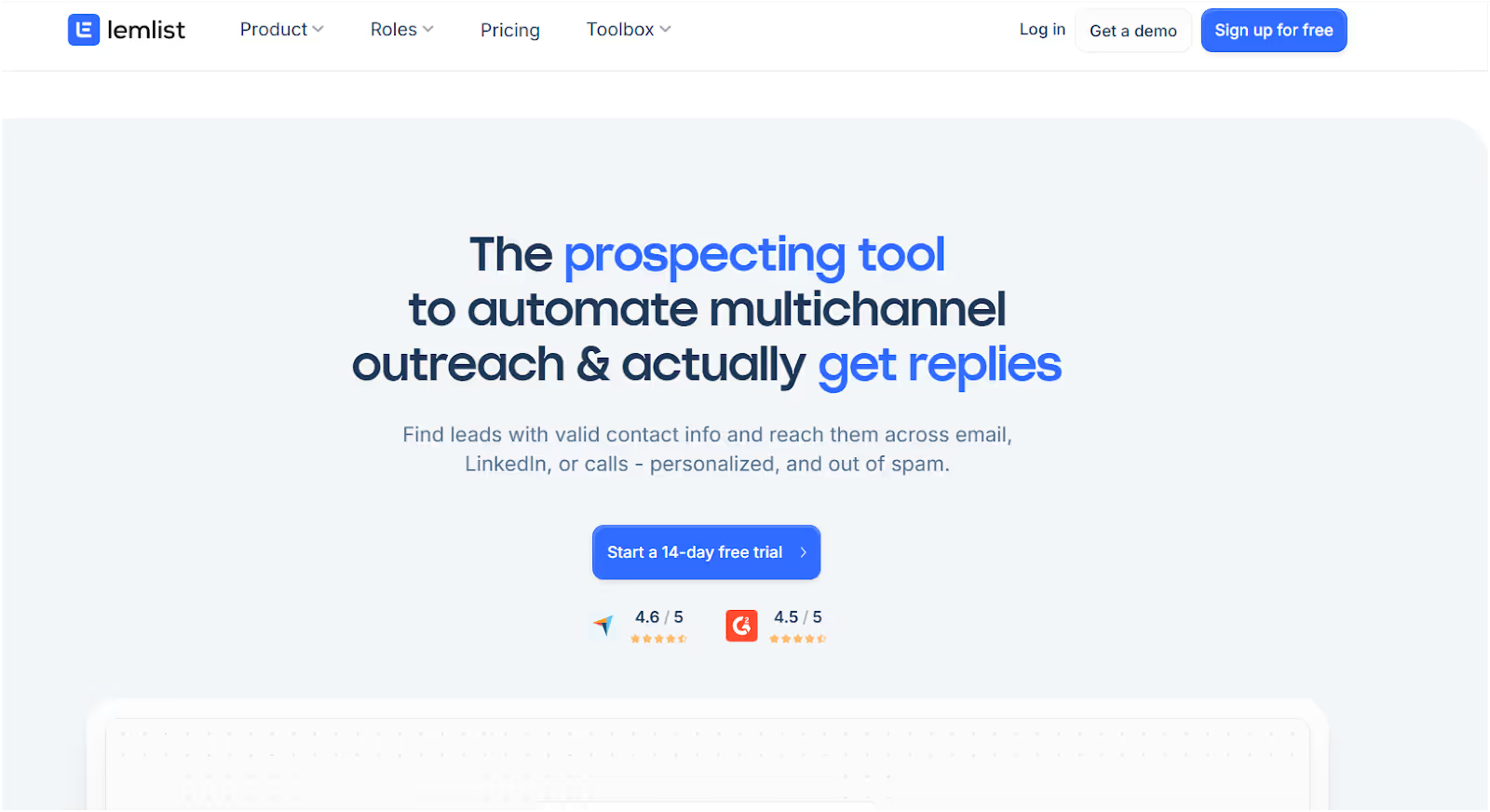
Lemlist made a name for itself with flashy visuals—custom images, video intros, and dynamic first lines. It also lets you reference mutual connections in your LinkedIn outreach, making your messages more relevant and increasing engagement.
If you’re obsessed with standing out in the inbox, it delivers.
But once you try to scale, things get messy, fast.
Reply.io is generic. Lemlist is personalized.
But personalization without reliability? Doesn’t move the needle.
Lemlist vs Reply.io: Which one to choose?
Lemlist Pricing:
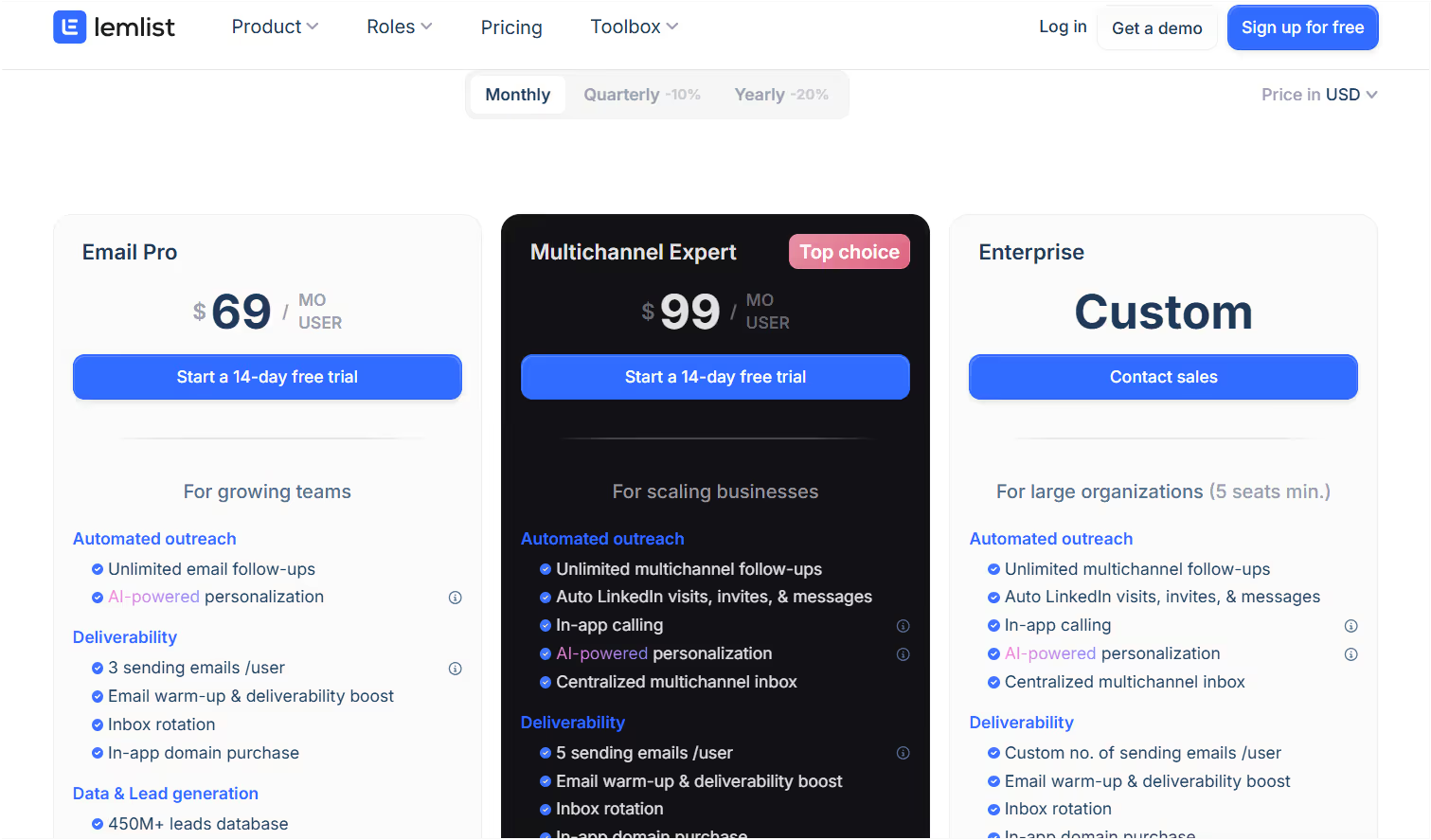
You’ll need the $99+ plan to unlock serious functionality.
And still, you’re fighting deliverability, spam traps, and a clunky interface.
Lemlist – Pros & Cons

In short,
Lemlist is perfect for small teams trying to look big.
But if you’re running real outbound at scale, the flashy features don’t make up for the cracks.
Reply.io may feel outdated, but Lemlist is overloaded.
We Tested 3 Lemlist Alternatives For Cold Outreach: Here's Our Findings
7. QuickMail – Budget Tool That Gets the Job Done (If You Don’t Mind Bugs)
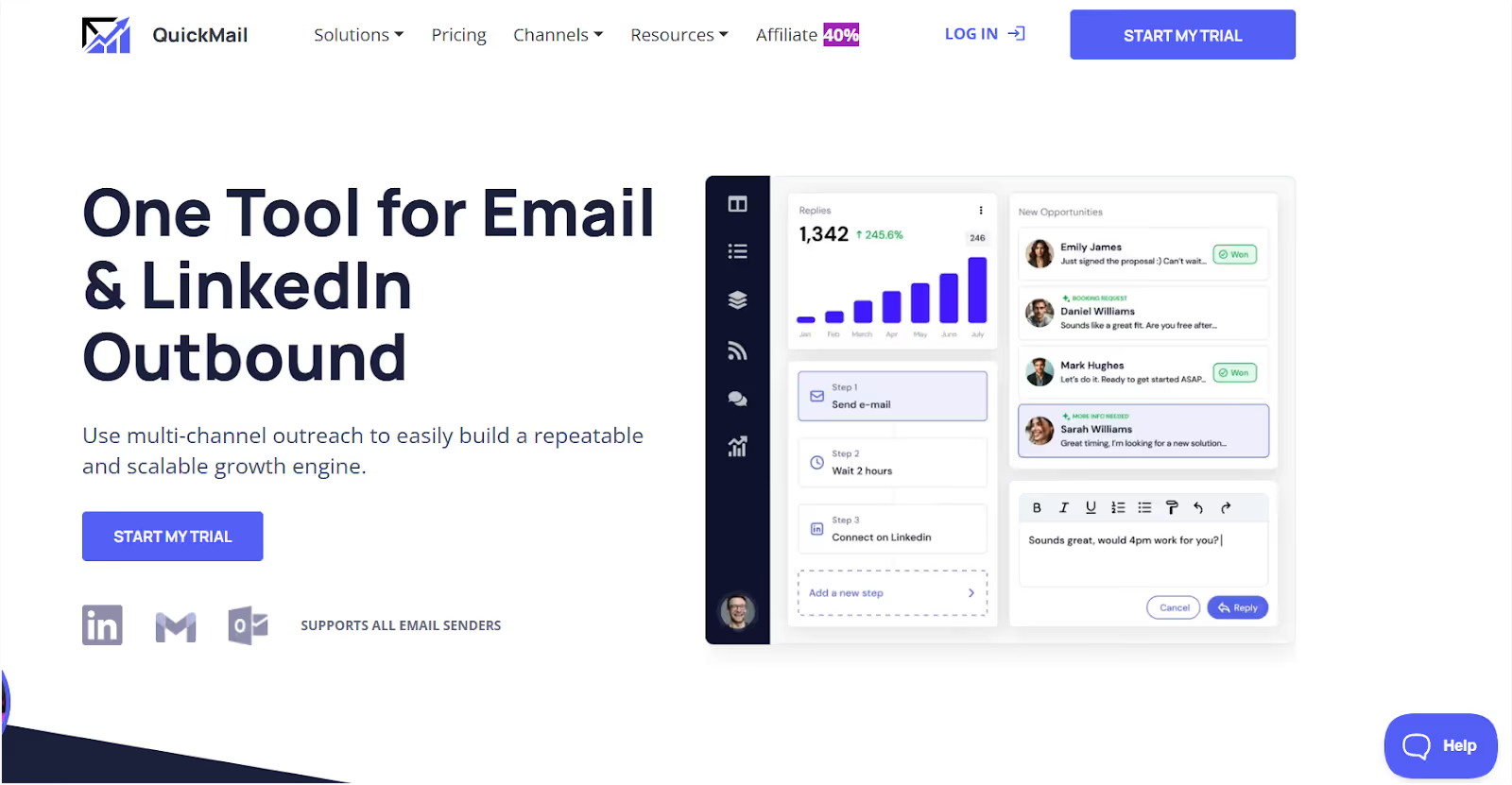
QuickMail is built for one thing: simple, cheap cold outreach.
You get automation, inbox rotation, built-in email warm up to improve deliverability, and even a LinkedIn sender… for $9.
Sounds insane, right?
But here’s the truth: it shows in the product.
If you’re bootstrapped and technical? It’ll work.
But if you want polish or scale? QuickMail breaks quickly.
QuickMail vs Reply.io: Which one to choose?
QuickMail Pricing:
QuickMail – Pros & Cons Table
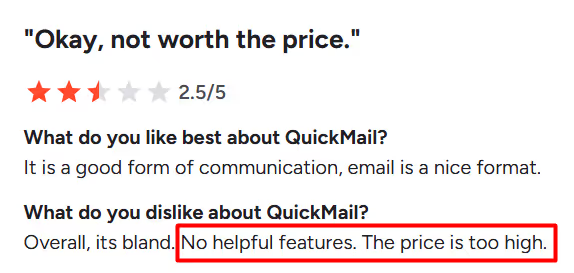
In short,
QuickMail is the indie hacker's cold email tool.
Built for lean teams who want raw output over fancy UI.
Reply.io is smoother, but it'll cost you 5–10x for similar throughput.
If you can handle the learning curve and a few bugs, QuickMail gets the job done.
Which Reply.io Alternative Should You Go For?
Final Thoughts: Choose the Tool That Matches Your Growth Goals
If you've made it this far, you're clearly serious about scaling outreach.
We broke down:
- Why Reply.io isn't built for scale or serious inboxing
- What really matters when choosing a cold outreach platform
- And 7 better tools based on real-world use cases
The right tool isn't just about features; it's about owning your pipeline.
You need control over sending, deliverability, data, and performance.
Not duct-taped hacks or support tickets that go nowhere.
If you want to stop guessing and start scaling predictable outreach, start with Salesforge.
It's the only platform built with cold email infrastructure at its core, not as an afterthought.
👉 Book a Demo or Try Salesforge Today and stop losing leads to spam folders.

.png)

.png)
.png)
